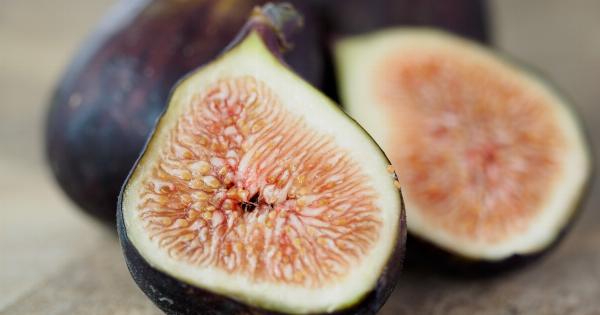Do you find yourself constantly craving sugary treats? If so, you might have a sweet tooth. Having a sweet tooth refers to a strong preference for foods and beverages that are high in sugar content.
While it’s normal to enjoy a sweet treat from time to time, indulging in excessive amounts of sugary items on a regular basis can have negative effects on your health.
What is a sweet tooth?
A sweet tooth is a term used to describe an intense craving for sugary foods and beverages. This craving is often characterized by a strong preference for sweets, desserts, candies, pastries, and sugary drinks.
People with a sweet tooth may find it difficult to resist the urge to indulge in these treats, even when they are aware of the potential negative consequences.
Causes of having a sweet tooth
There can be several factors contributing to the development of a sweet tooth. Some of the potential causes include:.
Genetics
Research suggests that genetics may play a role in determining a person’s preference for sweets. Certain genetic variations can affect how our taste buds perceive sweetness, making some individuals more inclined to enjoy sugary foods.
Psychological factors
Psychological factors, such as stress, emotional eating, or using sweets as a reward, can also contribute to the development of a sweet tooth. Many people turn to sugary treats as a means of comfort or to cope with negative emotions.
Imbalanced diet
Consuming a diet that is high in processed foods and added sugars can lead to an imbalance in your taste preferences.
When you regularly consume foods that are high in sugar, your taste buds become accustomed to this level of sweetness, which can make healthier options taste less appealing.
How to determine if you have a sweet tooth?
If you’re unsure whether you have a sweet tooth, taking a nutrition test can provide some insights. Here’s a simple test you can do to assess your preference for sugary foods:.
Step 1: Keep a food diary
Start by keeping a detailed food diary for one week. In this diary, write down everything you eat and drink, including snacks and beverages. Make sure to note the quantity and approximate serving sizes.
Step 2: Identify sugary foods
Once you have your food diary, go through it and identify all the foods and beverages that contain added sugars. These can include desserts, candies, sugary drinks, sweetened cereals, and any other items with high sugar content.
Note down the frequency and quantity of these items.
Step 3: Assess cravings
Reflect on your cravings throughout the week.
Did you experience strong urges for sugary treats? How often did you give in to these cravings? Understanding the strength and frequency of your cravings is an important step in determining if you have a sweet tooth.
Step 4: Analyze your results
After completing the first three steps, take some time to analyze your results. If you noticed a high consumption of sugary foods and beverages, frequent cravings, and difficulty resisting them, it’s likely that you have a sweet tooth.
The impact of a sweet tooth on your health
While enjoying sugary treats in moderation is unlikely to cause significant health issues, having a sweet tooth and overindulging in sugar can have negative effects on your well-being. Some of the potential impacts include:.
Weight gain and obesity
Consuming excessive amounts of sugary foods and beverages can lead to weight gain and even obesity. Sugar is high in calories and lacking in essential nutrients, making it easy to consume an excess of calories without feeling satisfied.
The frequent consumption of sugary treats can also disrupt your body’s natural hunger cues, leading to overeating.
Tooth decay and oral health problems
Excessive sugar consumption is closely linked to tooth decay and oral health problems. When you consume sugary foods and drinks, the bacteria in your mouth feed on the sugars, producing acids that can attack your tooth enamel.
Over time, this can lead to cavities, tooth decay, and other oral health issues.
Increased risk of chronic diseases
A diet high in added sugars has been associated with an increased risk of chronic diseases such as type 2 diabetes, heart disease, and certain types of cancer.
Regularly consuming sugary foods can lead to insulin resistance, inflammation, and other metabolic abnormalities that contribute to these health conditions.
Reducing your sweet tooth
If you’ve determined that you have a sweet tooth and would like to reduce your sugar intake, here are some tips to help you curb your cravings:.
1. Gradually decrease your sugar intake
Rather than going cold turkey, try gradually reducing the amount of added sugars in your diet. This approach can help you adjust to the taste of less sugary foods and beverages without feeling deprived.
2. Choose healthier alternatives
Swap sugary treats for healthier alternatives that still satisfy your sweet cravings. Opt for fresh fruits, dried fruits, or unsweetened yogurt as a nutritious and naturally sweet option.
You can also experiment with using natural sweeteners like honey or maple syrup in moderation.
3. Read food labels
Take the time to read food labels to identify added sugars in packaged products. Be aware of the different names for added sugars, such as corn syrup, fructose, sucrose, and others.
By being mindful of the sugar content, you can make informed choices about which foods to include in your diet.
4. Be mindful of your portions
Even when consuming healthier sweet alternatives, it’s important to be mindful of portion sizes. Remember that moderation is key, and even healthier options should be enjoyed in moderation to maintain a balanced diet.
Conclusion
Having a sweet tooth can be a result of various factors, including genetics, psychological factors, and an imbalanced diet. While enjoying sugary treats occasionally is fine, excessive sugar consumption can have detrimental effects on your health.
By identifying your preferences and making conscious choices to reduce your sugar intake, you can maintain a healthier lifestyle and protect your overall well-being.































